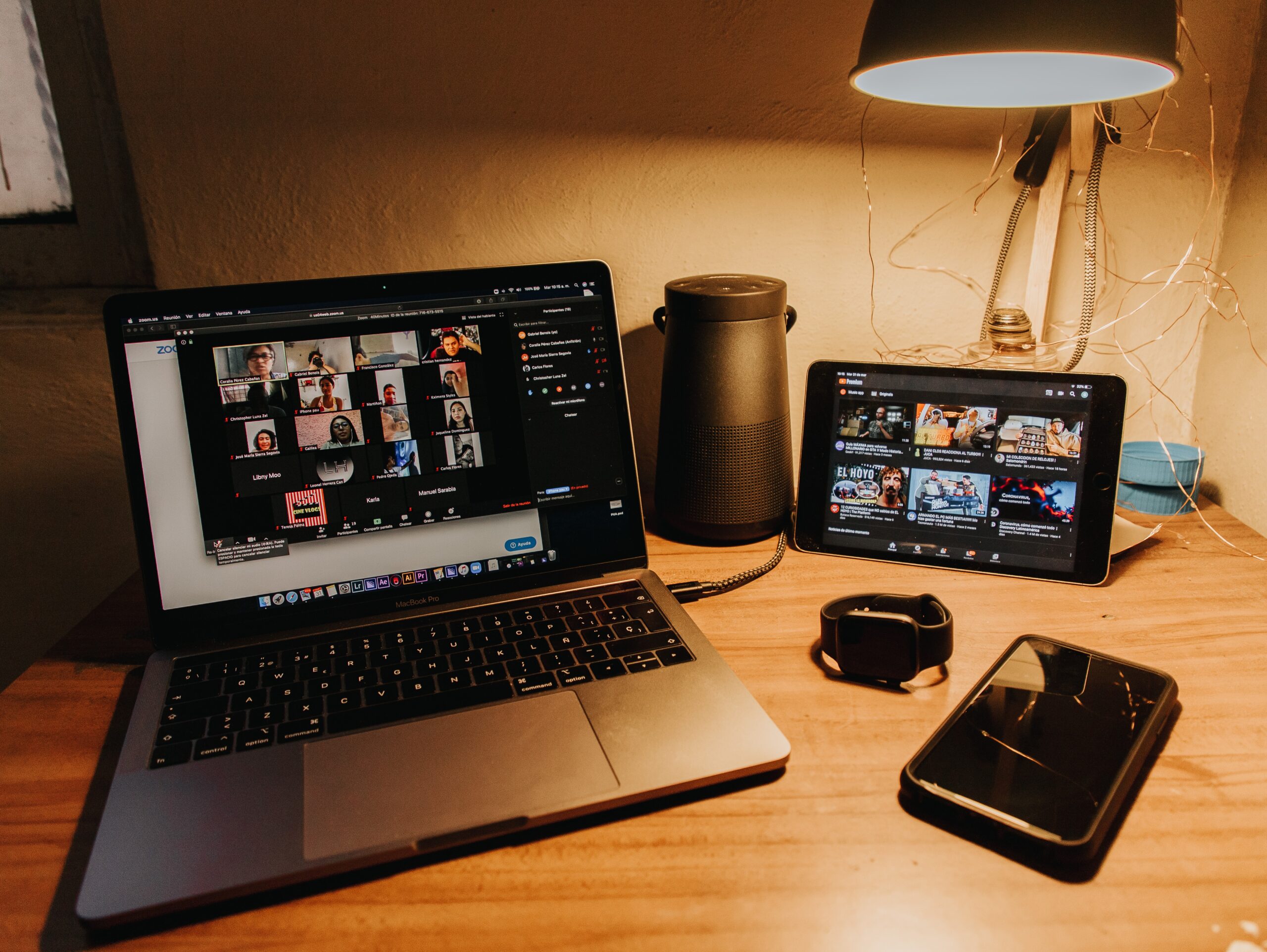Photo by Gabriel Benois on Unsplash
This week marks National Eating Disorder Awareness Week. Led by the National Eating Disorders Association (NEDA), the aim of the week is “to shine the spotlight on eating disorders by educating the public, spreading a message of hope and putting lifesaving resources into the hands of those in need.” In the midst of a global pandemic, NEDA Week is more important than ever. According to NPR, “hotline calls to [NEDA] are up 70–80% in recent months.” Furthermore, a survey published in the International Journal of Eating Disorders found that 62% of Americans with anorexia have experienced a worsening of symptoms during the pandemic, and nearly one-third of those with binge-eating disorder reported “increases in their binge-eating episodes and urges to binge.” Because of this, the Renfrew Center, the nation’s first residential eating disorder treatment center, is launching a new campaign, “Beyond the Screen: Invisible No Longer.” According to their website, the campaign “acknowledges the significance of looking deeper than what is visible in pictures or on video, especially when discerning the mental health of ourselves, friends and loved ones.”
Kathleen Martinez, a licensed professional counselor and team leader at Renfrew’s Radnor location, notes that while screens have become such a large part of our lives, they only show us one facet of a person’s character. The campaign is focused on “encouraging people to see that their life has more layers than that” and to “prioritize their own mental health during this time.” Martinez reports that during the pandemic, “we’ve seen that individuals who were already suffering with eating disorders are experiencing a worsening of symptoms.” This new reality has brought about a number of new situations that can be triggering for people suffering from an eating disorder.
First of all, Martinez notes that “it’s important to recognize that oftentimes there are other mental health conditions that go along with eating disorders.” For example, increased social isolation during quarantine can lead to depression. Furthermore, pandemic fears and uncertainties can exacerbate anxiety disorders.
In addition, Martinez and her colleagues have found that “Zoom dysmorphia” is a concern during this time. With work and school being done remotely, people are spending a lot of time on video conferencing platforms like Zoom. Martinez explains that on Zoom, our image is constantly reflected back at us: “You’re sitting there, staring at yourself all day on screen.” For those who struggle with body image, this can increase feelings of self-consciousness and body dissatisfaction, which can lead to disordered eating.
Furthermore, Martinez reports that the more time someone spends on social media, the more likely they are to deal with an eating disorder or disordered eating. This is because social media “doesn’t show real life or what people really look like,” she explains. Instead, we are seeing an idealized version of life, full of handpicked moments, selfies with optimized angles and lighting and photos that have been altered with filters and apps like Facetune. Many people tend to compare their real lives to others’ fake ones online, which can cause feelings of inadequacy, self-consciousness and dissatisfaction. This has been exacerbated by the pandemic as people spend more time on social media.
Additionally, this has led to more exposure to diet culture and “Quarantine 15” messaging. Martinez explains how this is problematic: “We’re dealing with a global pandemic, and suggesting to others that their weight is the most important thing is harmful.” This reinforces negative ideas around weight gain and body size, which contributes to body image issues and can cause disordered eating.
However, Martinez acknowledges that there are some positives to come out of the pandemic. Technologies like Zoom and FaceTime allow us to reconnect with long-distance family and friends we otherwise may not spend much time with. An absence of beauty appointments, such as haircuts and manicures, can become an opportunity to embrace your natural beauty and develop feelings of self-love. Fewer opportunities for dining out and takeout have led many to embrace nutritious home cooking. Additionally, the pace of life has slowed down, which gives us an opportunity to reevaluate our priorities. We can make time for self-exploration, mindfulness and connecting with others.
Furthermore, the transition to virtual life has allowed for more opportunities for treatment online. The Renfrew Center’s two residential centers are still offering in-person care, but their 17 other sites have gone digital, offering virtual day treatment, intensive outpatient programs and group therapy. Martinez reports that she and her colleagues are seeing patients outside of their typical service area, as those who typically could not make the commute can receive treatment from home.
Martinez’s main advice for those who are struggling is to “have some self-compassion and grace” during this difficult time. We are all experiencing a group trauma, and it is important to get some support if you need it. Martinez explains that negative thoughts like, “Maybe my eating disorder isn’t that bad,” “I’m not sick enough for treatment” or “I don’t deserve treatment,” prevent many people from seeking care. “Even if you don’t meet all the criteria [for an eating disorder], treatment may still be beneficial,” she suggests. “If you’re concerned or if others are concerned, it’s worth it to make the call.”
More resources about National Eating Disorder Awareness Week can be found on NEDA and the Renfrew Center’s websites.
For immediate help, call NEDA’s hotline at 1-800-931-2237. For 24/7 crisis support, text “NEDA” to 741741.
Shannon Montgomery is a fourth-year English major with minors in Creative Writing and Women’s & Gender Studies. SM916394@wcupa.edu

